What Is Ppc Affiliate Marketing?
Are you curious about PPC affiliate marketing? Well, let me explain it to you!
Imagine you’re browsing the internet and suddenly come across an ad for a cool new gadget. You click on it, and it takes you to a website where you can buy the product. Now, here’s the interesting part: the website owner didn’t create that ad themselves. They are actually part of an affiliate marketing program.
In PPC affiliate marketing, PPC stands for “pay-per-click.” It’s a type of online advertising where advertisers pay a fee each time someone clicks on their ad. As an affiliate marketer, your job is to promote these ads on your website or blog. When someone clicks on the ad through your site and makes a purchase, you earn a commission. So basically, you’re getting paid for directing traffic to the advertiser’s site. Pretty cool, right?
So, in a nutshell, PPC affiliate marketing is a way for website owners to earn money by promoting ads and getting a commission when people click on those ads and make a purchase. It’s a win-win situation for both the advertiser and the affiliate marketer. Now that you know what PPC affiliate marketing is, let’s dive deeper into how it works and how you can get started.
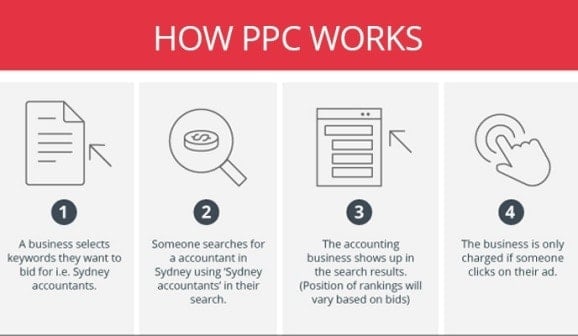
What is PPC Affiliate Marketing?
PPC affiliate marketing, also known as pay-per-click affiliate marketing, is a popular online marketing strategy where affiliates earn a commission for generating clicks and directing traffic to an advertiser’s website. In this model, advertisers pay affiliates a fixed amount for each click generated through their promotional efforts. It is a win-win situation where affiliates can earn passive income by driving traffic, and advertisers can increase their website visibility and potential customer base.
The Basics of PPC Affiliate Marketing
PPC affiliate marketing works on the principle of pay-per-click, allowing affiliates to earn money through clicks rather than actual sales. To get started, affiliates join an affiliate program or network and choose advertisers’ products or services to promote on their websites, blogs, or other online platforms. They then incorporate relevant advertisements or affiliate links into their content, enticing visitors to click on them.
When a visitor clicks on the affiliate link or advertisement, they are redirected to the advertiser’s website. This click is tracked using unique affiliate tracking IDs, enabling the advertiser to attribute the click to the affiliate responsible for generating it. If the visitor performs a desired action on the advertiser’s website, such as making a purchase or submitting their contact information, the affiliate earns a commission.
Benefits of PPC Affiliate Marketing
1. Passive Income: PPC affiliate marketing offers the potential for passive income, as affiliates can earn commissions for every click generated, regardless of whether it leads to a sale or not.
2. Diverse Monetization Options: Affiliates have an array of products and services to choose from to promote, allowing them to diversify their revenue streams and target different audience niches.
3. Low Investment: It requires little to no upfront investment as affiliates can leverage existing blogs, websites, or social media platforms to drive traffic and earn commissions.
4. Scalability: PPC affiliate marketing offers scalability as affiliates can scale their promotional efforts as their audience grows, potentially increasing their earnings.
5. Win-Win Collaboration: Advertisers benefit from increased visibility and potential customers, while affiliates earn commissions for driving qualified traffic to their websites.
The Process of PPC Affiliate Marketing
To become a successful PPC affiliate marketer, it is crucial to understand the process and follow a strategic approach. Here is a breakdown of the key steps involved:
1. Niche Selection:
Choosing a profitable and relevant niche is crucial for success in PPC affiliate marketing. Affiliates should focus on niches that have high demand, low competition, and attractive commission rates.
2. Join Affiliate Programs:
Affiliates need to join reputable affiliate programs or networks that offer a wide range of products or services in their chosen niche. These networks provide the necessary tracking and reporting tools to monitor clicks, conversions, and earnings.
3. Audience Targeting:
Understanding the target audience is essential for effective promotion. Affiliates should create customer personas and tailor their content and advertisements to resonate with their audience’s interests, needs, and preferences.
4. Creating Compelling Content:
High-quality content is key to attracting visitors and generating clicks. Affiliates should focus on creating informative, engaging, and persuasive content that incorporates relevant affiliate links or advertisements seamlessly.
5. Traffic Generation:
Driving traffic to the affiliate’s website or promotional platforms is crucial for earning clicks and commissions. Affiliates can utilize various strategies, such as search engine optimization (SEO), social media marketing, email marketing, and paid advertising, to increase their reach and attract relevant traffic.
6. Performance Tracking and Optimization:
Regularly monitoring the performance of promotional efforts is essential to identify what is working well and what needs improvement. Affiliates should analyze their click-through rates, conversion rates, and earnings to optimize their strategies and maximize their returns.
7. Compliance with Policies and Regulations:
Affiliates must adhere to the policies and regulations set by affiliate programs and networks, as well as local advertising standards. Failure to comply can result in termination from the program and loss of earnings.
In summary, PPC affiliate marketing is a valuable online marketing strategy that allows affiliates to earn passive income by generating clicks and directing traffic to advertisers’ websites. By understanding the basics, following a strategic approach, and focusing on providing value to their audience, affiliates can succeed in this lucrative field.
Key Takeaways: What is Ppc Affiliate Marketing?
- PPC affiliate marketing is a method of earning commission by promoting products or services through pay-per-click advertising.
- With PPC affiliate marketing, affiliates place ads on their websites or social media platforms and earn money whenever a visitor clicks on the ad.
- This type of marketing allows affiliates to earn passive income without the need to create their own products.
- PPC affiliate marketing requires careful selection of profitable niches and effective ad targeting to maximize revenue.
- Affiliates should monitor their campaigns regularly and optimize them to ensure a high return on investment.
Frequently Asked Questions
Welcome to our frequently asked questions about PPC affiliate marketing! Below, we’ve answered some common queries to help you understand this exciting form of online marketing. Keep reading to learn more!
1. How does PPC affiliate marketing work?
PPC affiliate marketing, or pay-per-click affiliate marketing, is a model where affiliates earn commissions for driving traffic to a merchant’s website through ads. Affiliates create and place ads online, and they only get paid when someone clicks on their ad and takes a desired action, such as making a purchase. This type of marketing allows affiliates to earn money through a commission-based structure.
When someone clicks on an affiliate’s ad and completes the desired action, typically tracked through a unique link or a tracking code, the affiliate receives a portion of the sale. This method benefits both the merchant, who gains increased website traffic and potential sales, and the affiliate, who earns a commission for their efforts. It’s a win-win situation!
2. What are the advantages of PPC affiliate marketing?
One of the main advantages of PPC affiliate marketing is that it is performance-based. Affiliates only earn money when their ads lead to desired actions, such as purchases. This means that advertisers can be more confident in their return on investment (ROI) since they are only paying for tangible results.
Additionally, PPC affiliate marketing allows affiliates to tap into established networks and brands. Rather than creating their own products or services, affiliates can promote existing ones, benefiting from the brand recognition and customer trust that the merchant has already built. This can save affiliates time and effort, as they can focus on promoting products rather than creating and maintaining them.
3. Is PPC affiliate marketing suitable for beginners?
Yes, PPC affiliate marketing can be suitable for beginners. While it may seem intimidating at first, there are plenty of resources and guides available to help newcomers navigate this field. Starting small and gradually expanding your campaigns can also help beginners gain experience and confidence.
It’s important for beginners to dedicate time to learning about PPC affiliate marketing, including understanding different advertising platforms, researching target audiences, and tracking campaign performance. With patience and perseverance, beginners can start to see results and grow their skills in this field.
4. How can I choose the right affiliate programs for PPC marketing?
When choosing affiliate programs for PPC marketing, it’s crucial to consider several factors. Firstly, look for programs that are relevant to your niche or target audience. Promoting products or services that align with your audience’s interests will increase the likelihood of conversions and successful campaigns.
Additionally, assess the commission rates offered by affiliate programs. Higher commission rates can mean more earning potential for you. It’s also beneficial to evaluate the program’s reputation and track record. Look for programs that have a good reputation, reliable tracking systems, and a history of paying affiliates promptly.
5. How can I optimize my PPC affiliate marketing campaigns for success?
To optimize your PPC affiliate marketing campaigns for success, start by conducting thorough keyword research. Selecting the right keywords will help you target your ads to the most relevant audience, increasing the chances of attracting potential customers.
It’s also crucial to continuously monitor and analyze your campaign performance. By tracking metrics such as click-through rates, conversion rates, and return on ad spend, you can identify areas that need improvement and make data-driven optimizations. Regularly testing different ad variations, landing pages, and targeting options can help you fine-tune your campaigns and increase your chances of success.
$400,000 in Sales. How to do Affiliate Marketing With Pay Per Click.
Summary
Ppc affiliate marketing is when you earn money by promoting products or services online. You get paid when someone clicks on your affiliate link and makes a purchase. It’s a great way to make money from home if you have a website or social media following.
There are different types of PPC affiliate programs, like search engine advertising and display advertising. With search engine advertising, your ads appear when people search for specific keywords. Display advertising involves placing ads on websites, videos, or mobile apps.
To succeed in PPC affiliate marketing, it’s important to choose the right affiliate programs, target the right audience, create compelling ads, and track your results. It takes time and effort, but with the right strategy, you can make a nice income with PPC affiliate marketing.
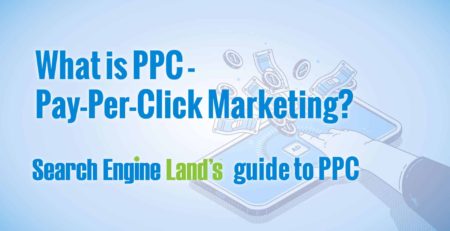
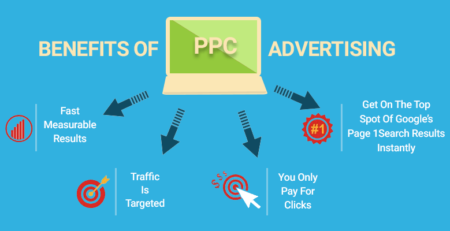
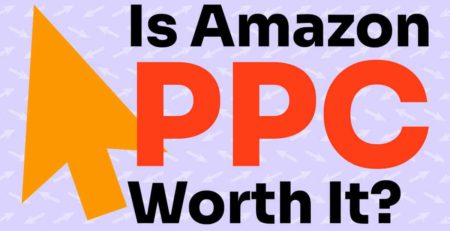
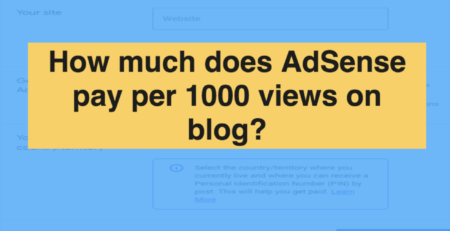

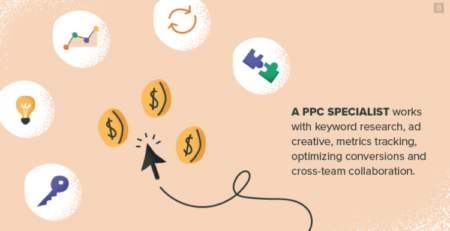
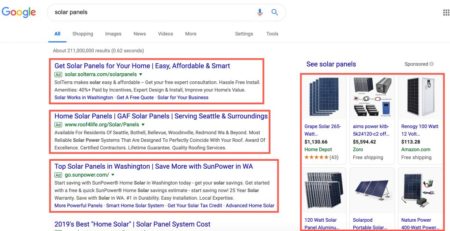
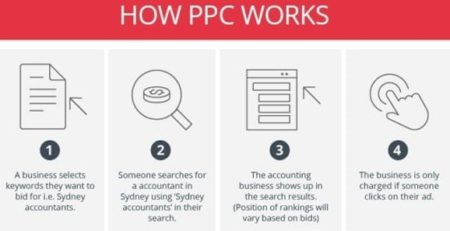
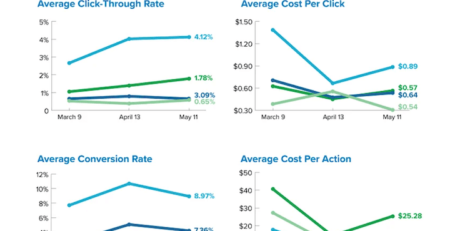
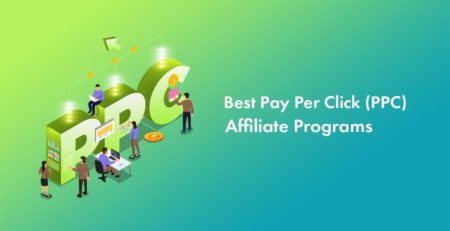
Leave a Reply